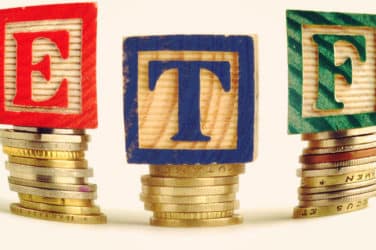
Tradeweb, a provider of fixed income and derivatives marketplaces, has launched an electronic credit checking facility that indicates whether a buy-side firm has sufficient collateral on hand to engage in a swaps transaction.
With the regulatory environment for trading swaps requiring a majority of financial institutions to begin clearing derivatives trades, it’s increasingly important that clients have efficient and cost-effective tools that give them real-time information about their ability to clear, especially for market participants preparing for the mandatory clearing deadline on June 10, 2013 under Dodd-Frank.
“We’re moving into a world where, irrespective of the implementation of the suite of SEF execution rules issued by the CFTC, market participants are going to have to deliver their trades into one of the CCPs,” said Jon Williams, co-head of U.S. institutional markets at Tradeweb.
On June 4, the CFTC published in the Federal Register a final rule establishing core principles and other requirements for swap execution facilities (“SEFs”), a new type of regulated entity established by the Dodd-Frank Act.
The final rule stipulates that an SEF must provide an “order book,” or platform in which all market participants in the trading system have the ability to enter multiple bids and offers, observe or receive bids and offers entered by other market participants, and transact on such bids and offers.
“As market participants begin to integrate clearing into their workflows, executing brokers need to have some sense of confidence that credit is available with the futures commission merchant [FCM], which is the clearing member of the CCP,” Williams said.
Tradeweb said that the first electronic indicative pre-trade credit check between a buy-side client and a FCM for an over-the-counter derivatives transaction has taken place. Using the electronic credit checking solution from Tradeweb, the unnamed client successfully received an indication of available credit from J.P. Morgan as the clearing bank and executed a cleared interest rate swap trade.
“Tradeweb has taken an important step toward pre-execution certainty of clearing,” said Andrés Choussy, global co-Head of OTC clearing at J.P. Morgan. “The ability to give an indication of available FCM credit lays the foundation for the ultimate goal: a legally binding credit commitment from both the FCM and the clearing house.”
The system that Tradeweb has developed enables customers to check for credit with their clearing banks using ping- or push-based protocols ahead of executing a swap transaction, minimizing latency and ensuring information security and confidentiality enables clearing member firms. i.e., FCMs, to upload credit limits for each customer at the beginning of the trading day. When the client reaches a preset tolerance level, which is monitored continuously by Tradeweb, the FCM is notified and can adjust the credit limit accordingly.
“When the FCM uploads the credit they are willing to extend, we allow them to designate a trigger point, of [for example] 75%,” said Williams. “Once a customer reaches that level, we can ping the FCM and ask if they want to upload more credit.”
The advantage of this approach is that the clearing member retains control and confidentiality. The CFTC’s Rule 1.74 requires clearing member FCMs to accept or reject each trade submitted to a designated clearing organization (DCO) for clearing within 60 seconds.
“Buy-side clients support this method because there is virtually zero latency, and trade information is not communicated to the executing broker and clearing member prior to the trade,” Williams said.
In addition to pre-trade credit-checking, Tradeweb offers access to liquidity through a range of trading protocols and connectivity to all major clearinghouses currently handling CDS and IRS transactions.
The platform provides real-time price transparency and will help market participants quickly and easily comply with pending rules that mandate electronic trading and central clearing for most derivatives trades.







